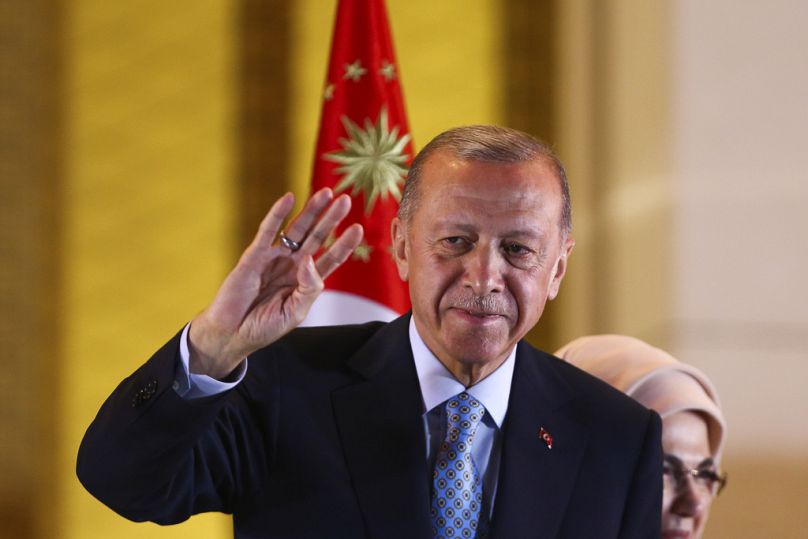Populist movements in Europe are still with us, and European liberals ought to take on board how and why they appeal to voters, political scientist Zsolt Enyedi writes.
A number of European elections in recent times strongly suggest that the wave of populism may have peaked in Europe.
Centrist parties, typically representing some version of liberalism, have managed to muddle through and retain public support in some places.
But the problems that caused Europe’s populist insurgency are still with us, with many of its aspects now transforming rather than falling away.
Populism is typically understood as a negative, transitory, and disruptive phenomenon. This is partly because, in the post-World War II period, populists tended to be amateurs.
Lately, however, a number of authoritarian parties have started to attract donors, campaign managers, lawyers, and government insiders to their cause.
You can't neglect national sentiments
These backers have changed the game and provided a more professional look to their operations by providing investment in institutions of socialisation, access to international contacts, and ground to forge geopolitical alliances.
Liberals, who are prone to self-flagellation, have acknowledged many of the political mistakes they committed in the past.
Neglecting national sentiments and showing insensitivity towards the plight of the losers of globalisation feature high on the list.
But they keep oscillating between two equally dangerous strategies.
The first is to focus on issues that affect tiny groups in the society. The second, typically adopted once the first proves disastrous, is to build on the assumption that ordinary citizens care only about material conditions.
They could do with observing their opponents.
Encouraging patriotism is not the same as populist nationalism
Populists, while playing the nostalgia card, also capture citizens’ imaginations by stirring debates about the future: a future full of apocalyptic threats.
Playing on fear has a bad reputation. But it is a completely legitimate strategy. If politics has any function, it is precisely to help us avoid future disasters.
The principal disaster heralded by populists is multicultural conflict and a loss of national identity.
Many citizens consider these real dangers, and although they are critical of the authoritarian movement, they often see their country’s authoritarian insurgents as counterweights against rapid social change.
Anti-populist discourse today has an equivalent danger: climate change. But we are a long way away from a restructuring of our political space as a consequence.
Climate concerns motivate the younger generation, less so the older one. This is a problem because, in most countries, young people don’t turn out to vote in such large numbers, and they are simply fewer.
This has the additional consequence that the universalistic, cosmopolitan discourse embraced by younger generations is likely to remain on the fringes of national policymaking for some time to come.
National identities are here to stay, and liberals need to remind people of the fundamental compatibility between liberalism and patriotism.
A sense of self-respect could help
In order to reach the median citizen, liberals need to explain how personal safety and cultural continuity will be safeguarded in the future.
They also need to identify authoritarianism as the source of conflict rather than the resolution.
There may be a dramatic scenario ahead of us – one of cultural and inter-cultural clashes – but the facilitators of such an outcome are exactly the ones who show themselves to be most concerned about it: populists like Matteo Salvini, Marine Le Pen, Viktor Orban, Narendra Modi, and Donald Trump.
Another thing liberals can learn from populists is the rhetoric of self-respect.
While references to national sovereignty may be self-serving and often shield corrupt leaders from criticism of their self-aggrandisement, human rights abuse and restrictions on press freedom, voters hear the voice of someone who doesn’t take orders and who doesn’t surrender in front of impersonal processes.
Viktor Orban, for example, has long cultivated the myth of Central Europe as a region that can rejuvenate European politics and forge ahead without waiting for Brussels.
The content of such rhetoric is reactionary, but the format has huge potential.
Core values matter
Ultimately, the best course of action for liberals is to stay true to their fundamental values, such as freedom. The protection of freedom represents a rejection of the hard right but also of the hard left.
It is true that liberals should take the issue of equality more seriously than in the past.
But they should also openly say that imposing radical visions of social justice on citizens while curtailing their freedom to speak up is an unacceptable idea, even if it comes from well-meaning and progressive young people.
They should keep reminding us that respect toward others is a virtue, but one still has the right to free speech whether one is respectful or not.
Zsolt Enyedi is a professor at the political science department at Central European University (CEU) and lead researcher for CEU’s Democracy Institute. He was also a speaker at the inaugural Budapest Forum in 2021.
This article was originally published on 8 October 2021.
At Euronews, we believe all views matter. Contact us at view@euronews.com to send pitches or submissions and be part of the conversation.






